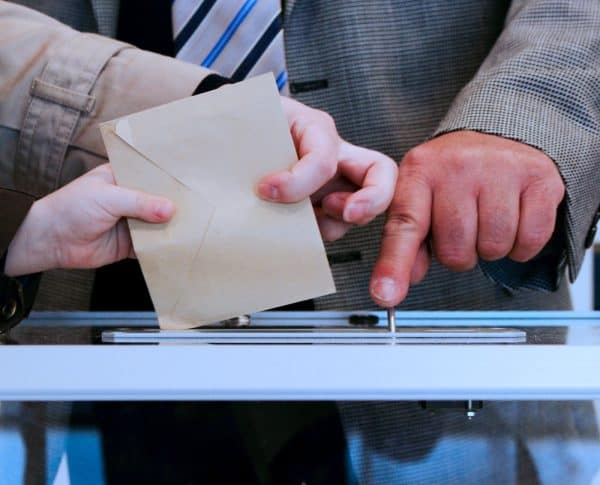 Russia’s blockchain or distributed ledger technology (DLT)-enabled voting system for the constitutional amendments recently suffered an attack through an election observer’s node.
Russia’s blockchain or distributed ledger technology (DLT)-enabled voting system for the constitutional amendments recently suffered an attack through an election observer’s node.
State-owned news outlet TASS reported that the attack took place on June 27, 2020, at about 8 PM CET. A spokesperson from government offices in Moscow told TASS that the attack didn’t affect the normal functioning of the e-voting system. The outlet confirmed that all digital votes will be accurately recorded by the DLT-based voting platform.
The government representative noted that Russian cybersecurity professionals had been working to restore access to the affected node. It’s not yet confirmed whether the node has been brought online or if it’s functioning normally.
Blockchain-powered e-voting in Russia reportedly took place from June 25 to June 30, 2020, for Moscow residents and those living in Nizhniy Novgorod (a Russian city).
The digital voting system has been developed on the Exonum blockchain platform, which was created by blockchain startup Bitfury.
Launched earlier this year, Russia’s constitutional amendments might potentially allow Vladimir Putin to serve two additional six-year terms. This means that if the changes to the constitution are approved, then Putin might end up serving as the Russian president until 2036.
The new e-voting website also went down earlier, when it became inaccessible just a few hours after it had first launched.
The blockchain-powered e-voting software has generated abnormal or inaccurate results in certain areas in the country. For example, almost 7,300 residents assigned to a polling station in Troitsky Administrative Okrug had been registered to cast their votes via the platform, even though the station only had 2,358 people that were eligible to vote. The area’s electoral commission said that a “technical malfunction” had caused the issue.
Several Russian citizens claimed that they were able to cast the same votes on multiple occasions, because the e-voting system has not been designed to work properly with offline processes.
Pavel Lobkov, a Russian reporter, shared a video which appears to show how he had been able to vote offline at a local polling station, and then he was also able to cast the same vote an hour later via the online system.
Yael Iliinsky, a Russian citizen living in Israel, claimed that he actually votes three times. He said he first voted via the digital platform, then at the Russian embassy based in Israel, and also at the Russian consulate based in Haifa.

